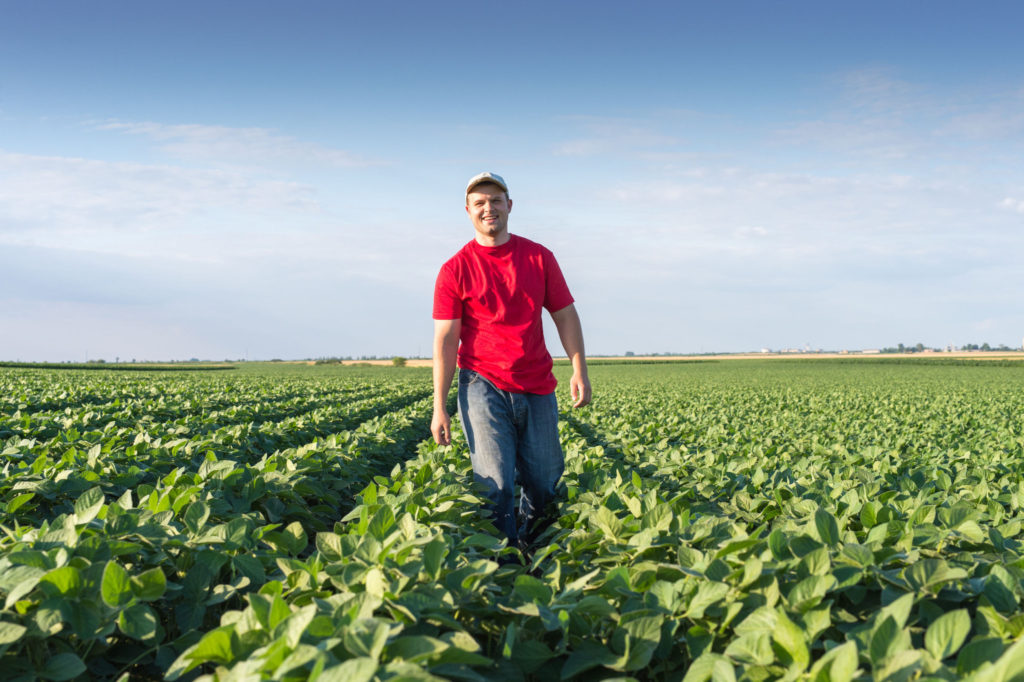Dennis Hollingsworth was fresh out of college the first time he tried running a farm. It was the early 1980s in south Georgia, and he stuck with it for four years in some of the roughest economic conditions since the Great Depression.
Then he left for an IT job.
“I went to Atlanta and I thought I would never look back and I didn’t for years and years,” Hollingsworth said. “But it’s time for me to do some things that I’ve always wanted to do. “
Over the next five years, Hollingsworth and his wife plan to leave their 4,300 square-foot home in Lawrenceville and move to a manufactured home on a farm in Banks County.
They’ll raise goats and calves and the crops needed to feed them.
And they’ll have the University of Georgia to provide support and guidance.
For the past three years, UGA Cooperative Extension has partnered with the UGA Small Business Development Center (SBDC) and other business educators across the state to equip new farmers with the business acumen they need to succeed.
The Journeyman Farmer Certificate Program, offered at locations across the state, brings together UGA outreach units and outside groups to provide multifaceted training for beginning and young farmers.
The program focuses on developing mentorships for beginning farmers, providing nuts and bolts training in either small ruminant or vegetable production and, maybe most importantly, focuses on financial and business training.
Hollingsworth enrolled in the program in Gainesville and worked with Extension County Coordinator Bob Waldorf and SBDC Area Director Bruce Cutler to refine his business plan before launching his farm.
“I don’t want to lose money in retirement,” Hollingsworth said. “And that’s why I wanted to put together a business plan. As I did, it became a thing where I could look at it and say, ‘Yeah, you know I could do this for the next 25 years and enjoy it.’”
The journeyman program has helped more than 500 young and beginning farmers since it was launched in 2015.
Some are young entrepreneurs looking to make the most of the market’s desire for more locally grown food. Some are traditional farmers who are looking to improve an inherited farming business. And many, like Hollingsworth, are second-career farmers looking to make the most of farming in their retirement.

Often those who go into farming have big dreams, a passion for hard work and a vision of the simplicity and peace of pastoral life. What they don’t have, in many cases, is a workable business plan.
“I know you’ve heard it before, but if you fail to plan, you’re really planning to fail,” Waldorf said.
“Up in this area we have a lot of people who are coming into the area and buying a small farm, and they’re calling me and asking me how they can make that farm work,” he added. “Their very first step should be having a plan down on paper to see if they can make it.”
The partnership between UGA Extension and SBDC makes sense because both groups deal with critical, but specialized, programming, Cutler said.
Agriculture businesses need this collaborative approach because, while they share a lot of similarities with other small business, they’re also plagued by more uncertainty, which makes planning and technical advising even more important.
“They have challenges related to nature that are over and above the challenges faced by other businesses,” Cutler said.
A big part of the planning is helping people realize when an idea won’t work or that an idea needs major changes before it will work.
Having a community of like-minded entrepreneurs and advisors from both the business and agricultural fields can make that process easier.
“Bob is discussing what will grow and what won’t grow here from the Extension side,” Cutler said, “and I’m talking about it from the business side: How are you going to sell it? ”
This is part of a series of stories about UGA and economic development in rural Georgia. For more information, please visit http://outreach.uga.edu.
(Source: J. Merritt Melancon, Writer, University of Georgia Public Service and Outreach)


